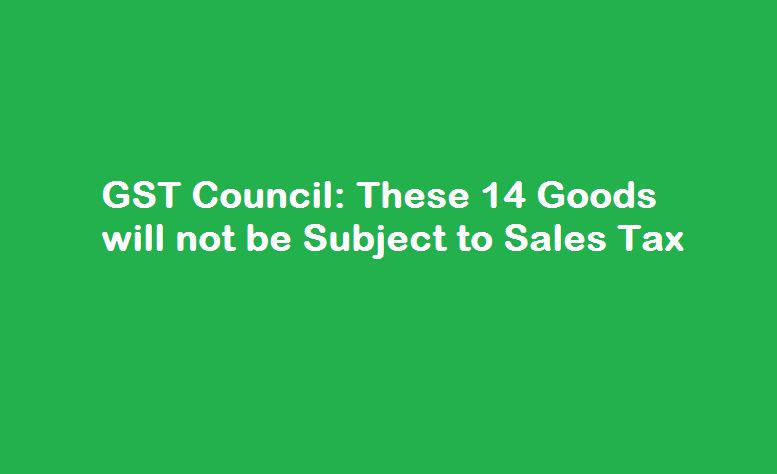The GST Council is a constitutional body that oversees the implementation of the Goods and Services Tax (GST) in India. The commission comprises the Union Finance Minister, who serves as its chairperson, and state finance ministers from all 29 states and two union territories with a legislative assembly. The council meets periodically to make decisions regarding GST rates, rules, and regulations.
In a recent decision made by the GST council, it was announced that 14 goods will not be subject to sales tax under GST. These goods include COVID-19 vaccines, medical-grade oxygen, ventilators, pulse oximeters, and hand sanitizers up to 500 ml per bottle. This decision aimed to provide relief during the ongoing pandemic by making these essential items more affordable for consumers across India. The move has been welcomed by businesses and consumers alike, as it will help ease financial burdens during these trying times.
List of 14 goods:
The Goods and Services Tax Council has announced that 14 goods will be exempted from sales tax. These products include sanitary napkins, deities made of stone, marble, or wood, and raw materials used in brooms such as bamboo, organic manure, and fortified milk. The decision was taken to make these essential items more accessible to the public.
This move is expected to benefit consumers across India facing rising prices due to inflation. Additionally, it will help small-scale manufacturers of these goods scale up their operations without worrying about the additional burden of taxes. The GST council has stated that this decision was taken after considering numerous proposals from states seeking exemptions for various items. Overall, experts believe this move is a positive step towards boosting consumption and spurring economic growth in the country.
Reasons for exemption:
The Goods and Services Tax (GST) Council recently announced that 14 goods would be exempted from sales tax. This decision was taken after carefully considering each product’s economic significance and impact on the commoner. The council has exempted essential goods for daily use, such as sanitary napkins, small cars, insulin, and hearing aids.
The council has also considered products that have been hit hard by the COVID-19 pandemic. For example, medical-grade oxygen concentrators were exempted from GST to ensure their availability at affordable prices during these challenging times. Similarly, diagnostic kits used in COVID-19 testing have been exempted to encourage more widespread testing nationwide.
Overall, these exemptions were implemented to ease the burden on consumers and make essential goods more accessible and affordable. The GST council has made a conscious effort to choose products that will benefit individuals and society while promoting economic growth in India.
Impact on consumers:
The move will likely bring relief to the general public as they will not have to bear the burden of increased taxes on these essential goods. This decision is expected to help reduce the cost of living for many households and boost consumer demand.
Another significant impact of this move is that it could increase consumption, which could stimulate economic growth. As more people can purchase these essential items without paying additional taxes, it can improve their standard of living and contribute towards a healthier economy. This decision may also encourage small businesses and local manufacturers who produce these exempted goods as their products become more affordable for consumers.
Overall, this decision by the GST council is likely to positively impact the general public as it reduces their financial burden while promoting economic growth.
rajkotupdates.news:gst-council-no-gst-will-be-charged-on-these-14-items
Implementation date: When the exemption will come into effect
The implementation date of the exemption for the 14 goods not subject to sales tax has been a much-anticipated topic. The GST council has announced that the exemption will come into effect from 1st July 2021, which marks the beginning of the new fiscal year. This decision was made after considering various factors such as revenue loss and economic impact.
It is important to note that this exemption will only apply to specific goods such as medical-grade oxygen, ambulances, and ventilators. Other essential items like PPE kits and COVID vaccines are already exempted from GST. This move aims to aid in combating the ongoing pandemic by providing relief to healthcare facilities and patients.
While some concerns about potential revenue loss due to this exemption have been raised, it is hoped that it will encourage more businesses to invest in producing essential goods needed during these unprecedented times. Overall, the implementation date for this exemption is a positive move towards supporting healthcare facilities during one of India’s most challenging times.
Read Also: rajkotupdates.news:pm-modis-developed-country-goal-is-the-first-of-the-five-pledges

